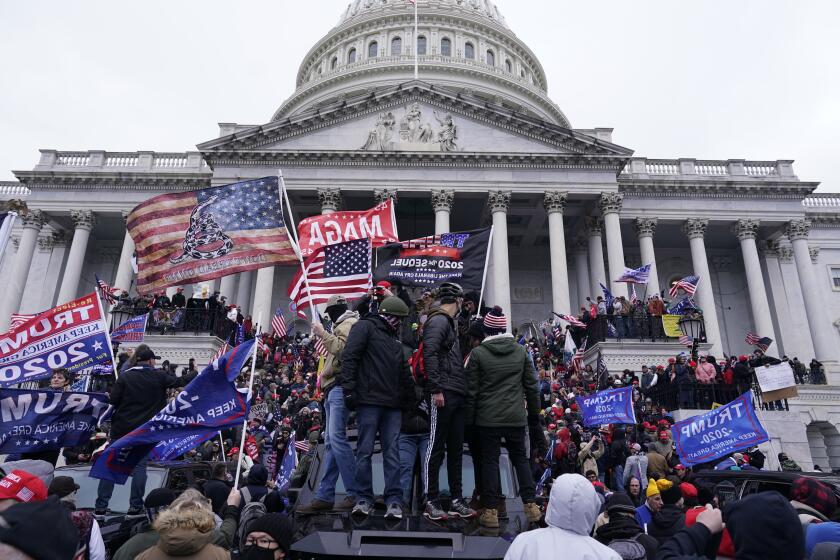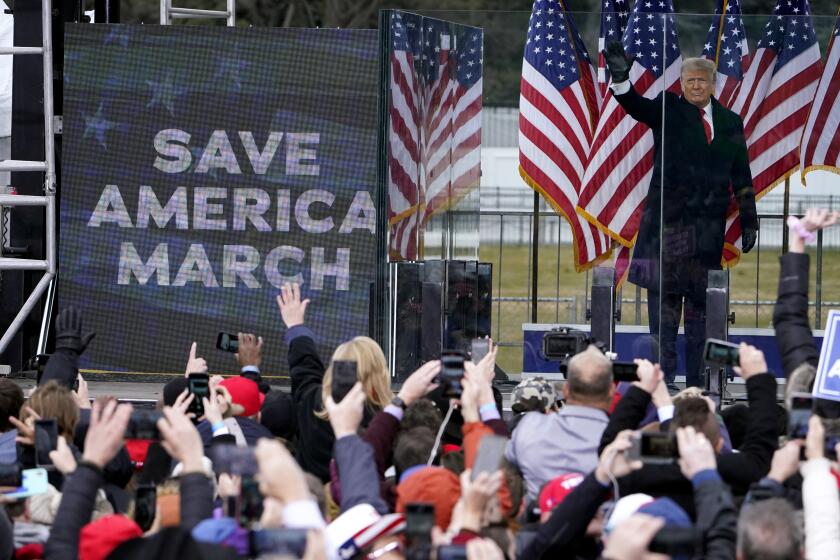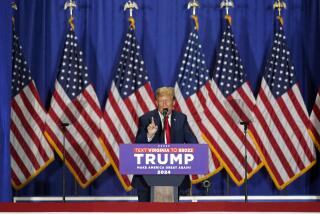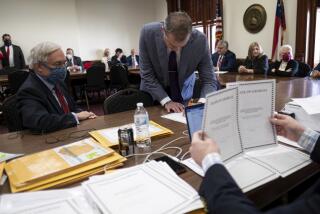Jan. 6 committee subpoenas fake Trump electors in seven states
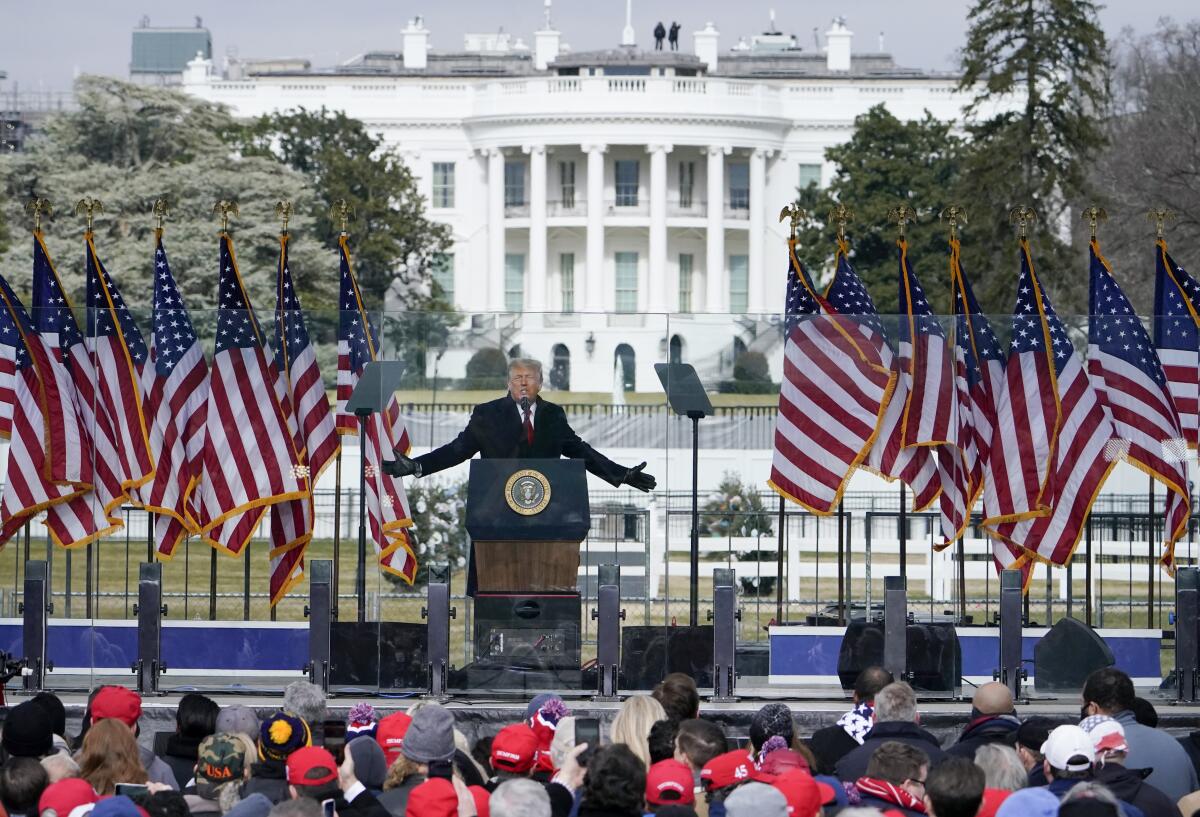
WASHINGTON — The House committee investigating the U.S. Capitol insurrection subpoenaed more than a dozen individuals Friday who it says falsely tried to declare Donald Trump the winner of the 2020 presidential election in seven swing states.
The panel is demanding information and testimony from 14 people who it says allegedly met and submitted false electoral college certificates declaring Trump the winner of Arizona, Georgia, Michigan, New Mexico, Nevada, Pennsylvania and Wisconsin, according to a letter from Mississippi Rep. Bennie Thompson, the committee’s Democratic chairman. President Biden won all seven states.
“We believe the individuals we have subpoenaed today have information about how these so-called alternate electors met and who was behind that scheme,” Thompson said in the letter. “We encourage them to cooperate with the Select Committee’s investigation to get answers about Jan. 6 for the American people and help ensure nothing like that day ever happens again.”
The nine-member panel said it has obtained information that groups of individuals met on Dec. 14, 2020 — more than a month after election day — in the seven states. The individuals, according to the congressional investigation, then submitted fake slates of electoral college votes for Trump. Then “alternate electors” from those seven states sent those certificates to Congress, where several of Trump’s advisors used them to justify delaying or blocking the certification of the election during the joint session of Congress on Jan. 6, 2021.
Lies about election fraud from the former president and his allies fueled the deadly insurrection on the Capitol building that day, as a violent mob interrupted the certification of the electoral college results.
Last March, American Oversight, a watchdog group, obtained the certificates in question that were submitted by Republicans in the seven states. In two of them, New Mexico and Pennsylvania, the fake electors added a caveat saying the certificate was submitted in case they were later recognized as duly elected, qualified electors. That would only have been possible if Trump had won any of the several dozens of legal battles he waged against those states in the weeks after the election.
On Jan. 6, 2021, an insurrection unfolded at the U.S. Capitol when a mob stormed the building while lawmakers voted to certify the electoral college results and Joe Biden’s victory.
In the other five states, however, Republicans certified that they were their state’s duly elected and qualified electors.
U.S. Deputy Atty. Gen. Lisa Monaco said in a CNN interview this week that the Justice Department had received referrals from lawmakers regarding the fake certifications, and that prosecutors were now “looking at those.”
An Associated Press review of every potential case of voter fraud in the six of the battleground states disputed by Trump has found fewer than 475 — a number that would have made no difference in the 2020 presidential election.
The House panel investigating the Capitol riot wants to hear from the former White House aide who it says helped draft Trump’s speech that day.
Biden won Arizona, Georgia, Michigan, Nevada, Pennsylvania and Wisconsin and their 79 electoral college votes by a combined 311,257 votes out of 25.5 million ballots cast for president. The disputed ballots represent just 0.15% of his victory margin in those states.
The fake electors are the latest subpoenaed in the large-scale investigation the committee has been pursuing since it came together last summer. The congressional probe has scrutinized Trump family members and allies, members of Congress and even social media groups accused of perpetuating election misinformation and allowing it to spread rampantly.
The committee plans to move into a more public-facing phase of its work in the next few months. Lawmakers will be holding hearings to document to the American public the most detailed and complete look into the individuals and events that led to the Capitol insurrection.
Associated Press writers David Eggert in Lansing, Mich., and Eric Tucker in Washington contributed to this report.
More to Read
Sign up for Essential California
The most important California stories and recommendations in your inbox every morning.
You may occasionally receive promotional content from the Los Angeles Times.
